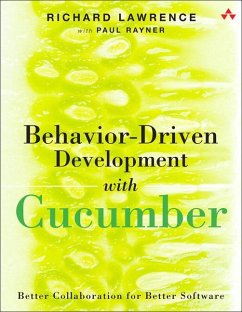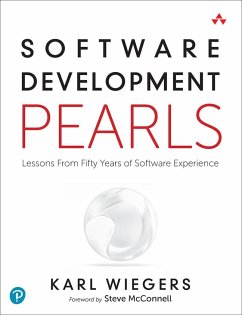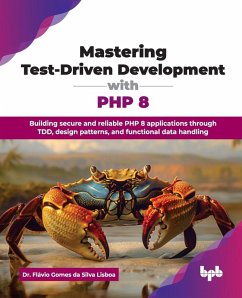
Managing Technical Debt: Reducing Friction in Software Development
Reducing Friction in Software Development
Versandkostenfrei!
Versandfertig in 1-2 Wochen
25,99 €
inkl. MwSt.
Weitere Ausgaben:

PAYBACK Punkte
13 °P sammeln!
Over time, technical debt affects virtually every significant software project. As software systems evolve, earlier design or code decisions prove to be "not quite right," gradually becoming impediments that slow down the evolution of the system, or even grind it to a halt. Most software practitioners have experienced this phenomenon, but many feel helpless to address it. In this guide, three leading software engineering experts introduce empirically validated principles and practices for managing and mitigating technical debt in any software system.Using real-life examples, the authors explai...
Over time, technical debt affects virtually every significant software project. As software systems evolve, earlier design or code decisions prove to be "not quite right," gradually becoming impediments that slow down the evolution of the system, or even grind it to a halt. Most software practitioners have experienced this phenomenon, but many feel helpless to address it. In this guide, three leading software engineering experts introduce empirically validated principles and practices for managing and mitigating technical debt in any software system.
Using real-life examples, the authors explain the forms of technical debt that afflict software-intensive systems, their root causes, and their impacts. Next, they introduce a palette of proven approaches, strategies, methods, and tools for:
Using real-life examples, the authors explain the forms of technical debt that afflict software-intensive systems, their root causes, and their impacts. Next, they introduce a palette of proven approaches, strategies, methods, and tools for:
- Identifying sources of technical debt in any software system
- Assessing the magnitude of technical debt
- Limiting the introduction of technical debt in the first place
- Reducing the impact of technical debt over time













